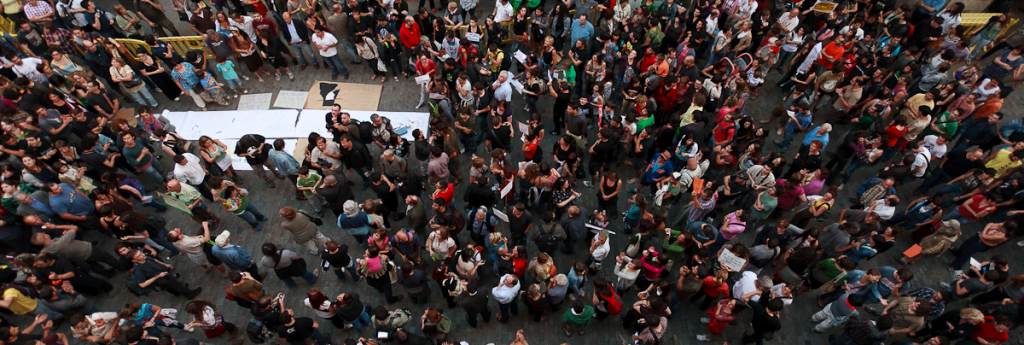Thirty scholars from the Albert Hirschman Centre on Democracy’s core research team and affiliated faculty, have contributed to the development of projects that bridge theoretical and empirical research, academic and policy work. Research at the Centre focuses on four main themes: (1) Voice and participation in policy processes; (2) Democratic voice under liberal and illiberal regimes; (3) Law, courts and democracy and (4) Transparency, regulation and accountability.
The Centre currently hosts 11 externally funded projects, which have received funding from the Swiss National Science Foundation (SNF), the Swiss Network for International Studies (SNIS), the Gerda Henkel Foundation, and the Swiss Society of Americanists (SSA).
THEME 1: Voice and participation in policy processes
Democratic participation extends well beyond the ballot box to a voice in policy processes which govern people’s daily lives. Three projects address questions such as: How is voice expressed in policy processes in various contexts? What is the relationship between popular voice and expertise? What factors influence the form and quality of voice?
Constitution-making and deliberative democracy (2018-2022)
THEME 2: Democratic voice under liberal and illiberal regimes
In the context of the current disenchantment with democracy and the rise of increasingly “illiberal” regimes, projects explores the diversity of meanings, forms and experiences of democracy in various regions of the world. Among the issues addressed are: How does democratic participation intersect with different kinds of economic regimes, redistribution policies, political cultures and recognition discourses? Which spaces are created and used by citizens to express voice when faced with soft authoritarian regimes that seek to supress dissent and public protest?
Governance through disorder: Illiberalism and the politics of unpredictability (2019-21)
Images, (in)visibilities, and work on appearances (2020-24)
THEME 3: Law, courts and democracy
Courts are guarantors of rights essential to democracy and the rule of law. But they can arguably also contribute to a de-politicization of issues. It is important to understand how courts are being used by civil society actors today. How far can and do they render the state and multinational corporations accountable? How is the use of courts by activists transforming democratic experiences and how are courts themselves transformed in the process?
THEME 4: Transparency, regulation and accountability
Transparency and accountability are cornerstones of contemporary democratic politics. Beyond expressions of democratic voice as found in practices like voting and protesting, citizens in democratic societies increasingly exercise their sovereignty using mechanisms of surveillance and grievance redressal to hold the state accountable. How might citizens participate in governance in an administrative state? How are transparency and accountability produced, protected, and—in some cases—manipulated in global, national, and sub-national contexts? In what ways does an emergency like COVID19 affect mechanisms of transparency and accountability?
The puzzle of unspent funds: The institutional architecture of unaccountable governance (2020)
Transparency: Qualities and Technologies of Global Gemstone Trading (2017-20) (in collaboration with the CCDP)


